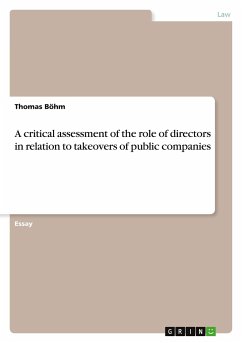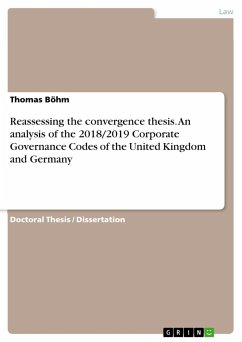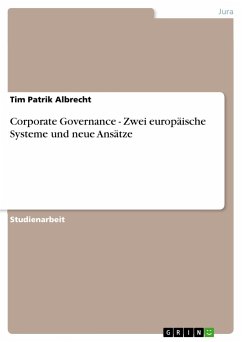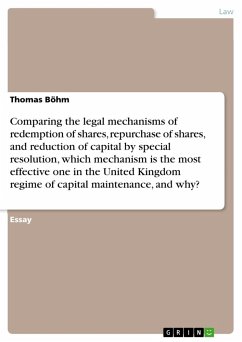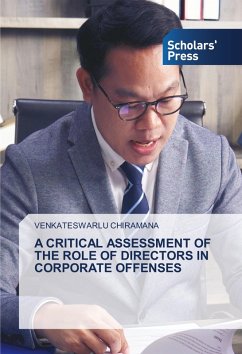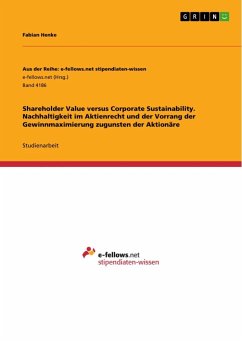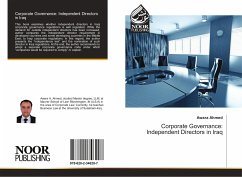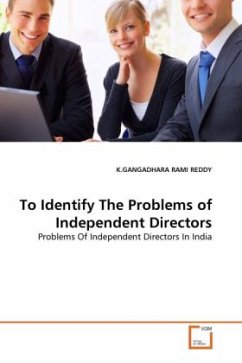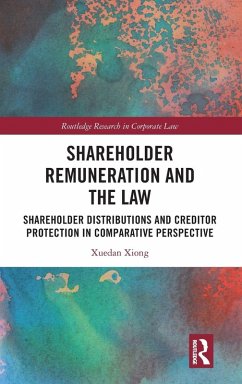
A critical discussion of the effectiveness of independent directors in monitoring and disciplining the senior executives in the UK and the US
How can the effectiveness of independent directors be improved?

PAYBACK Punkte
0 °P sammeln!
Essay from the year 2019 in the subject Law - Civil / Private / Trade / Anti Trust Law / Business Law, grade: A, University of Edinburgh (Edinburgh Law School), course: Comparative Corporate Governance, language: English, abstract: Independent (non-executive) directors have long been regarded as an essential corporate governance instrument in monitoring and disciplining the senior executives of listed companies, both in the UK and the US. However, large corporate scandals and the global financial crisis at the beginning of the 21st century have shown that independent directors have not entirel...
Essay from the year 2019 in the subject Law - Civil / Private / Trade / Anti Trust Law / Business Law, grade: A, University of Edinburgh (Edinburgh Law School), course: Comparative Corporate Governance, language: English, abstract: Independent (non-executive) directors have long been regarded as an essential corporate governance instrument in monitoring and disciplining the senior executives of listed companies, both in the UK and the US. However, large corporate scandals and the global financial crisis at the beginning of the 21st century have shown that independent directors have not entirely met the high expectations placed on them. Doubts about their effectiveness in holding the management to account have arisen.On this occasion, this essay critically discusses the effectiveness of independent directors in monitoring and disciplining the senior executives in the UK and the US. By exploring the role of independent directors, particular attention is paid to the limitations of the current governance systems from a legal and practical point of view. It becomes clear that many of the shortcomings attributed to the concept of director independence have arisen precisely from the requirement to have a majority of independent directors on the board. The essay also presents proposals to improve the effectiveness of independent directors.The essay is structured as follows. Section 2 explores the origins of independent directors in the UK and the US and answers the question why managers need to be monitored by (independent) directors. Section 3 then outlines the different standards and definitions of independence in the UK and US corporate governance systems. Subsequently, section 4 goes into more detail on the monitoring role of independent directors while stating the key components for effectiveness. Section 5 critically discusses the main limitations of independent directors in monitoring and disciplining the senior executives, followed by a series of proposals to improve their effectiveness. Section 6 concludes.




